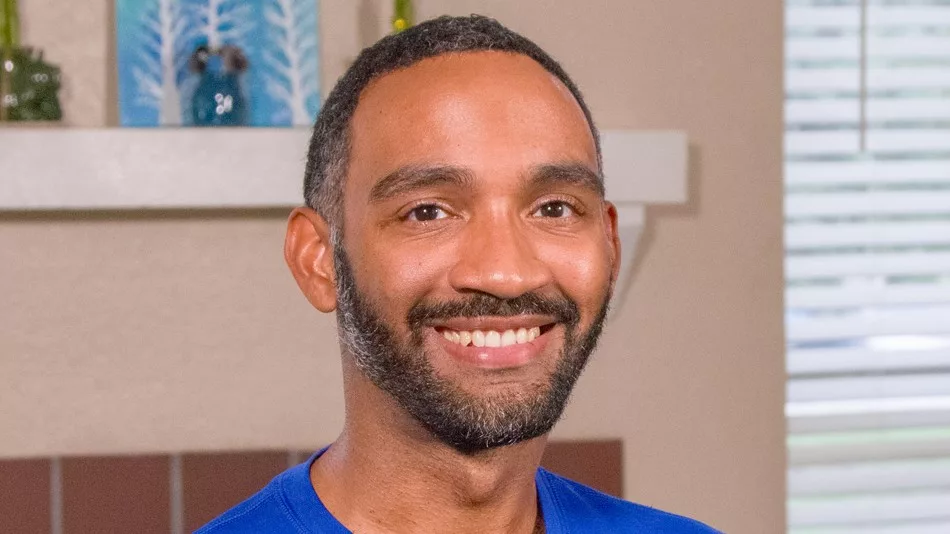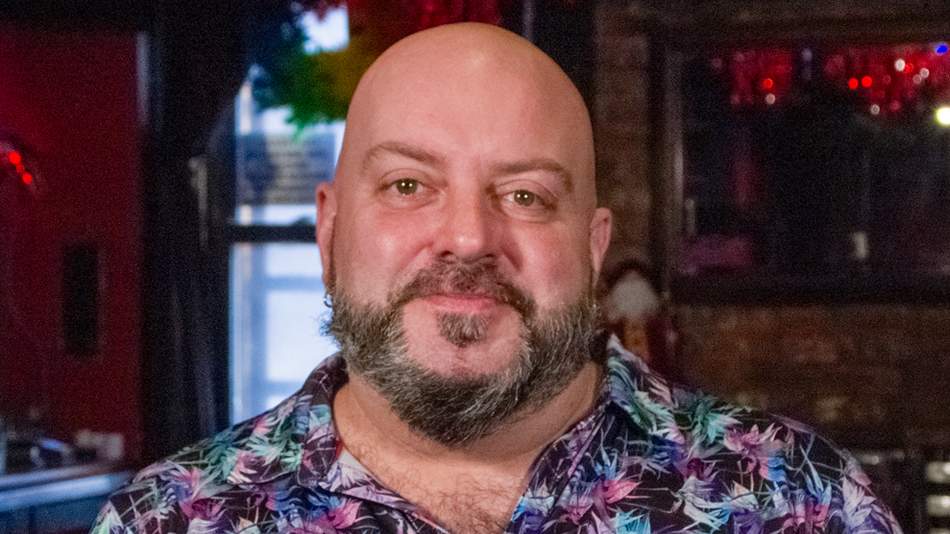I’m Blake Allen and I’m from El Paso, Texas.
And when I was 18, I moved to Provo, Utah to go to school at Brigham Young University. Provo and BYU are very Mormon and LDS, and so I didn’t really feel comfortable going to the university knowing that I was gay. But then my viola mentor at the university pulled me aside and said, “I want you to know that you’re gay. And if you have any issues, just like I’m here for you.” Which is really great because I didn’t feel like I had anyone there.
In the Mormon church, every man in and around the time they’re 19 years old goes on a mission where they, like, try to convert people and do service projects. And my whole life, I never really wanted to do that, and so I had this plan that to not go on my mission, the only way that my family would be okay with it is if I came out, because otherwise that’d be disappointing my family.
So then I went home for the holidays at Thanksgiving and I told my parents – well, we went around the table and we said, like, what we were grateful for. And I’m the youngest, so I was the last. And so I said, “I’m grateful for a family who doesn’t care I’m gay.” And my mom quietly pushed herself away from the table and left.
And then my father said, “You’re not gay. Satan just has a grasp on your soul.”
So after coming out, it became very clear that, you know, I didn’t really have the familial support system that I was expecting or that I needed and wanted. But then I had such a support system, even secretly, with my viola mentor at BYU. So I kind of felt more safe being at BYU than being at home.
Then I met my friend who played percussion in the orchestra that I played viola in. And we both knew that each other was gay, so we kind of created this sort of bond only on that. And then after my freshman year, I couldn’t find a place to live and he let me sleep on his couch. At that time, I started figuring out that he had clinical depression, but I wasn’t really understanding my own depression of being at BYU, being Mormon and trying to navigate that.
About like a year later, around Thanksgiving time again, I was visiting my sister who lived a couple hours away. And my friend reached out and said, “Hey, I need a friend right now. Can you come hang out with me? Can you go see a movie?”
And I said, “I can’t. I’m with my sister.”
And then he reached out again and said, “No, I really need someone.”
And I said, “I’m really sorry. I can’t.” And then we didn’t really talk. Then the weekend happened, then we went back to school. We had plans to hang out, but then they fell through.
December 4th, 2007, I saw him walking through campus. And so I stopped and said, “Hey, like, let’s try to hang out this week.” And then I recognized that he was the happiest I had ever seen him.
And so I… I made that comment and he was like, “Oh yeah, yeah, I’m really happy.”
I’m like, “Well, I’m glad you’re happy. Like, this is such a turnaround.”
Later that day, I called him right before work. It was around six o’clock and at 6:30, I had to work. And so I said, “I’ll talk to you later.”
He goes, “Okay, I’ll talk to you later.” It was 6:30 and then he then stole his roommate’s car and died by carbon monoxide poisoning. And so I was the last person that he spoke to.
I didn’t find out about my friend’s death until the next day. And when I found out I was in the atrium of the music building, which is just this vast place and I had know I, like, let out a sound that I probably didn’t know I could do. And I just remember, like, blackness and I was on the floor. Even though I know I couldn’t have changed something, I was sitting here thinking that there was something I could do, that if I was a better friend, if I was a better, whatever, I was a better student, that I could have saved his life. And so I started shutting down.
My mentor took me in and said, “This is what’s happening. Let me see what I can do to help. You can stay in my office as long as you need/ I will try to freeze your grades.” Like just, you know, being that support system that I needed.
My wonderful parents, you know, the moment that they found out, they dropped everything and they drove the 14 hour drive in a snow storm. They actually got in a car crash on the way, because of the icy roads. I needed my mom, I needed my dad. And then they weren’t able to give me the love that I needed, or my expectation of what I needed, because not only was… like, they weren’t okay with me being gay, but here’s my gay friend who died. And I just didn’t know how to process it and they weren’t there in the way that I wanted them to be.
And then if I fast forward a couple months, then my wonderful viola mentor sat me down and she goes, “I don’t think that you are aware that you are sitting by yourself.” I was acting out, I was dying my hair red. I was wearing tight clothes. I was, like, expressing my pain and anguish and trauma outwardly as – while inside I was holding it all in. So I think it was very clear that I was on a path to die, whether that was by suicide or by self-medicating or substance abuse. It just wasn’t… I was not on a good path.
And so my viola teacher helped me realize that. And so I kind of started changing my life and, like, trying to do the best I could. And I turned to be the, you know, try to be the best student that graduated, but I was still keeping all my energy inside. I still was not confronting the demon of the trauma that was going on.
I moved to New York in 2011-ish. And so this is 2012, so it’s five years since my friend’s death, and I still had not handled my trauma. So my therapist said, “Well, why don’t you channel this trauma, channel this negativity into your art. You’re an artist, you’re a musician, you’re a composer.”
So then I started writing. I started composing and I started with… the very first thing I wrote was about me and my issue. Through the process of writing my autobiographical story, I started understanding my trauma. I started – I was able to compartmentalize that I was able to grow from that experience.
Writing a kind of theatrical piece takes years and years and years and so in 2017, I had a concert of it. So there was five years. And my father came to see it. After the show, he came up to me with tears in his eyes and he said, “I had no idea.” He put his hands around me. He outwardly expressed emotion to me for maybe the second time in his entire life.
I felt love with his embrace. I felt… not only was he proud of me for creating something, but he just, like, I felt a change. I felt that we together wanted to put two steps forward and fix our relationship.
So then I decided I was going to release this piece as an album. Then my father came like randomly, he’s like, I want to come to this release party. I’m like, Did you know what a release party is? So then he showed up. You know, it was at a gay venue in the city with like porn on the walls. And then my dad came up to me and, you know, once again, put his hands around my shoulder and said, “I’m very proud of you. And I’m grateful, you’re telling your story. And I’m very grateful that I can be part of it… part of this experience.”
And then he also said something so profound that was, you know, when he saw it in 2017 or listened to it back then, it was very much about like me, me, me, me, me, my story, like, let me heal through the trauma, but now through further development, it’s more about how can I use my story to help someone else to give a light for someone who needs the light. And that’s kind of what I always want to say is, let me use my trauma and the love that my friend who died had to help someone else.
Through the release of the music and through the development, the – my relationship with my mom has healed. You know, I love her so much and we’ve learned to outwardly express it more. I call her every day. She’s like a friend. My relationship with my sister, which has always been great, is better. Like, we call all the time. She lives in the Netherlands.
Like it’s just…everything in my life, the reward of understanding of my trauma and dealing with it is that I’m getting the love that I needed, but I didn’t know how to get. Being vulnerable allows people in. I have built so many walls in my life. And you know, it’s hard to just tear it on a wall, but it’s easy to open a window or a door. And I think that the vulnerability of expressing art allows other people to come into those doors and those windows.








Share